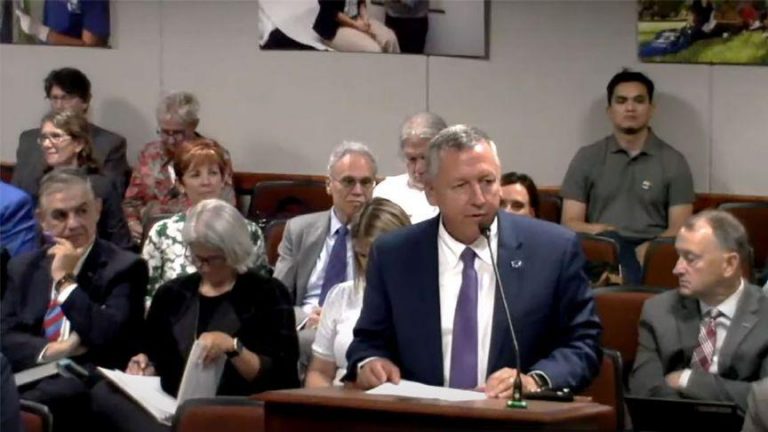Kansas Profile – Now That’s Rural: Stephanie Switzky, indigenous literature Does the general public know about the indigenous people who live in Kansas? Today we’ll meet an innovative rural educator who is helping her students learn about the culture and literature of indigenous people in our state and beyond. Stephanie Switzky is an English and literature teacher at Royal Valley High School in Hoyt. She is leading an initiative to teach Native American and other indigenous literature in her school. She grew up in Topeka, went to Topeka High, and then Texas Christian University. In 2002, she came back to Kansas and served as youth minister at a church in Manhattan. “I didn’t know I wanted to be a teacher until I was 28,” Switzky said. She met and married a young man from Topeka and worked in human resources there. “I found I really missed being with teenagers,” Switzky said. She earned a degree in English with an education emphasis and later received a master’s in literary arts. In 2011, she took her first teaching position in the Royal Valley school district north of Topeka. “I thought, ‘I’ll do this for a year and then move on,’” Switzky said. “I found I love it here.” She has been at Royal Valley ever since. Switzky was intrigued when her superintendent said, “This is the most diverse rural school district in the state.” It serves the Prairie Band Potawatomi Nation as well as the rural communities of Hoyt, population 593, and Mayetta, population 348 people. Now, that’s rural. About one-third of Royal Valley’s students are indigenous or native. Switzky become even more intrigued as she learned more about the culture of her indigenous students and sought to enhance her literature curriculum. In 2020, she took the plunge. “I told my principal that I wanted to teach a class on indigenous literature,” Switzky said. He was supportive and referred her to the Prairie Band Potawatomi. Switzky’s continued research led her to Lisa Tatonetti at Kansas State University. “I sent her an email and she emailed me right back.” Switzky said. Tatonetti is a K-State distinguished teaching scholar and professor of English who has a specialty in indigenous literature. Tatonetti mentored and encouraged Switzky as Switzky developed curriculum for an indigenous literature high school course. They met weekly on Zoom for nine months. “Dr. Tatonetti has been incredibly generous with her time and knowledge,” Switzky said. “I learned a ton as we read and discussed and read and discussed some more.” This involved far more than reading a few books and poems. Switzky found it required going deeper to learn native history, culture, and the deeper meaning of the literature, plus delving into her own perceptions of native life. In fall 2021, Switzky launched her first course in Native American literature. She now calls the course Indigenous Literature. The class went very well. “It was lovely,” Switzky said. “My non-native students soaked it all in, and my native students really opened up more than they had before.” It was truly a mutual learning experience. Switzky has offered the class each fall since. The units of study include images and representation, boarding schools andindigenous futurism, a research project on themes in Native American children’s books, indigenous environmentalism, and an indigenous photo essay. Her students commented about how this class broadened and improved their perspectives. Switzky’s work was even recognized when she was asked to speak to a Kansas Board of Education working group. “I would like more students to have this opportunity,” Switzky said. “I love all my students and I want what’s best for them. I’ve enjoyed being able to learn from them too.” “Ultimately I do this to help strengthen relationships. When people know more about their neighbors’ cultures, the opportunity for growth is greater.” How can we learn more about Native American history, culture and life? Thanks to Stephanie Switzky, both native and non-native students in her classes are learning and sharing about the literature and culture of indigenous people. She is making a difference by helping her students live and learn. Audio and text files of Kansas Profiles are available at http://www.kansasprofile.com. For more information about the Huck Boyd Institute, interested persons can visit http://www.huckboydinstitute.org.





